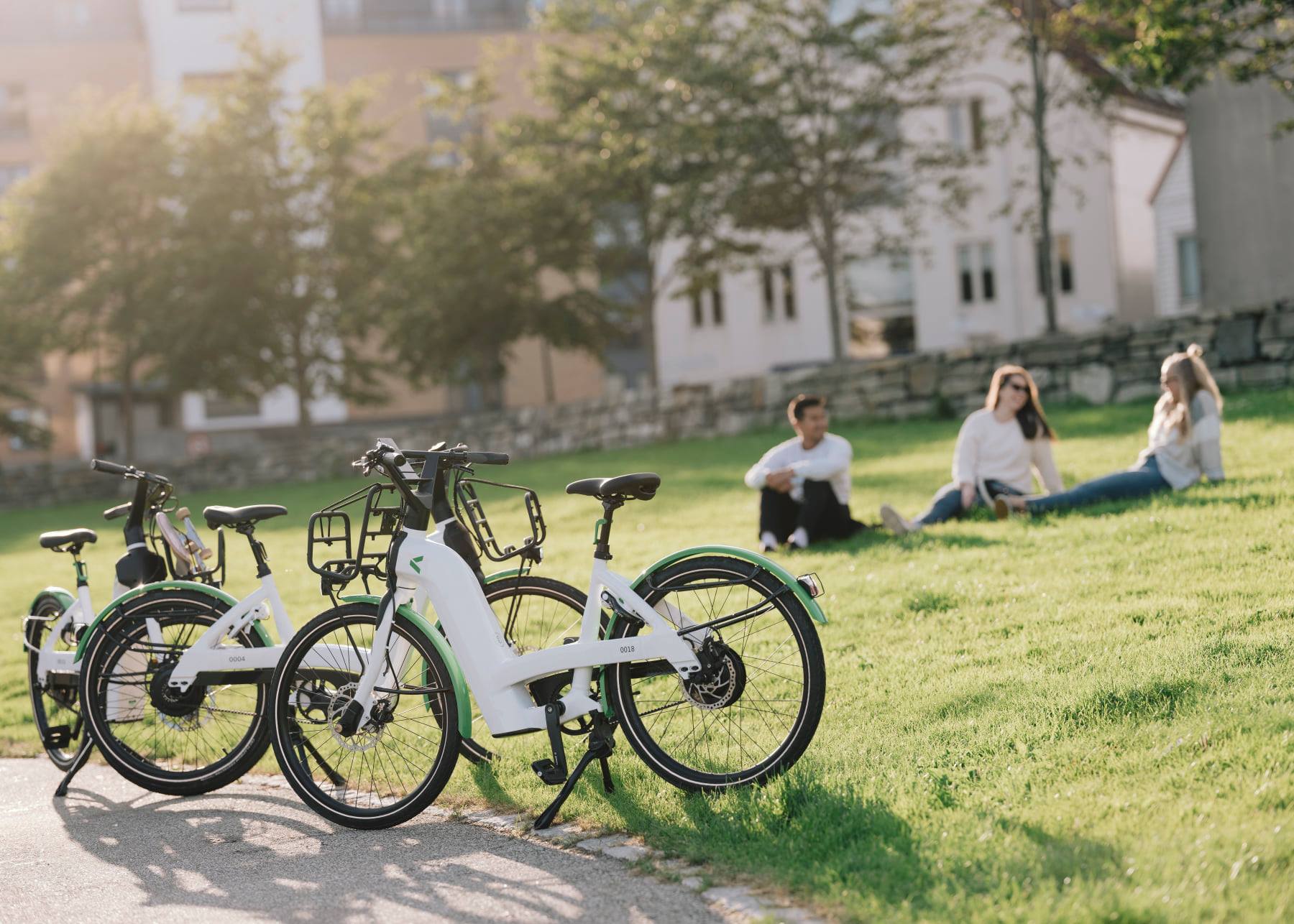Rogaland rides out
Take a shared bike, make it electric and add it to the public transport ticket, what happens next? Rogaland shares their foray into the world of integrated ticketing.
POLIS member Rogaland is a region located on the southwest coast of Norway and is known for its stunning fjord landscape, as well as for the cities of Stavanger and Sandnes.
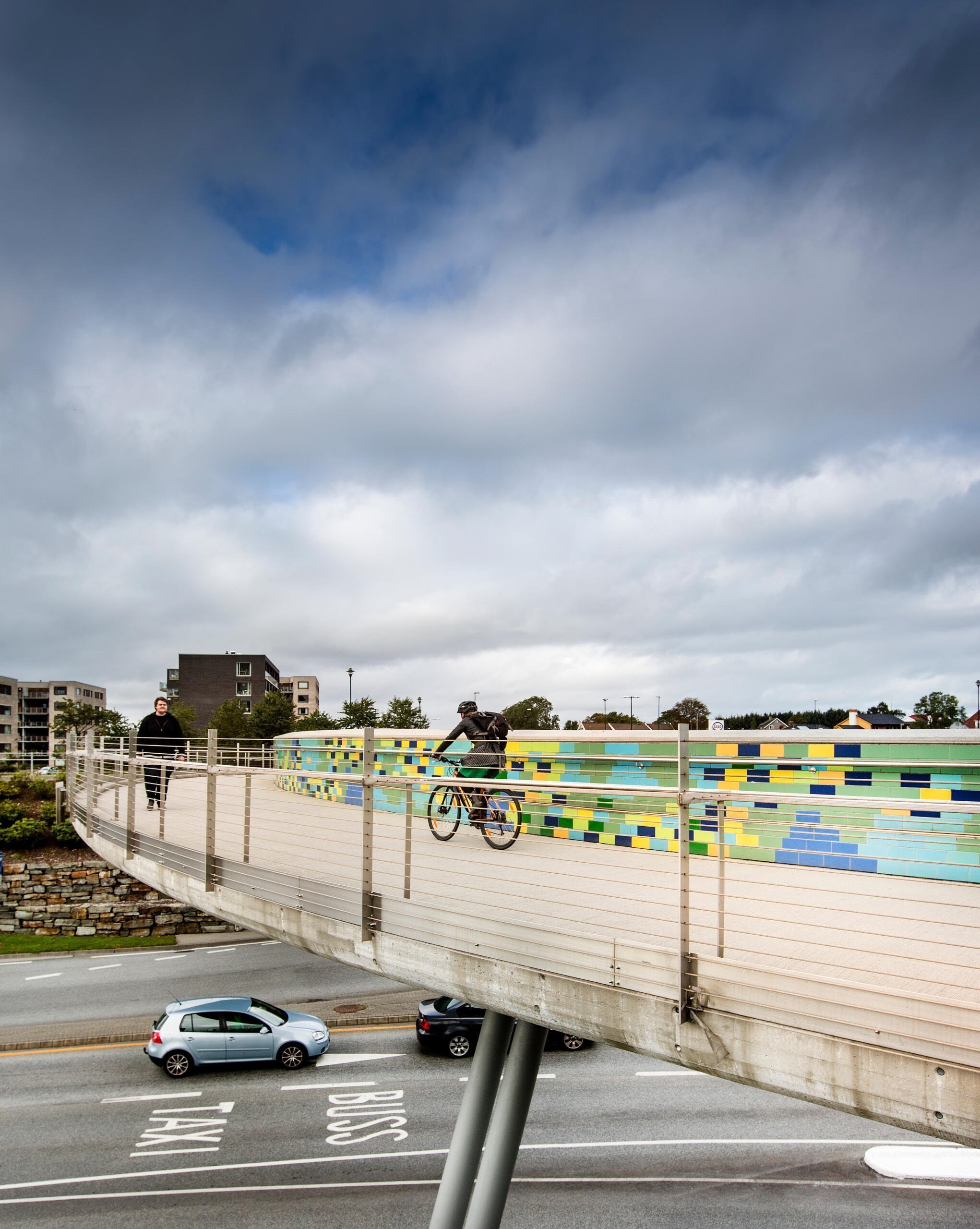
Cycling bridge in Stavanger.
Credit: Rogaland County Council
Over the last several decades the region has witnessed rapid population growth, prompted by the discovery of oil fields in the North Sea in 1969. As many cities and regions across the globe have experienced, such sudden development led to surging urban sprawl where the car became the undisputed king.
Today, the Stavanger and Sandnes area holds one of the highest car modal shares in Norway. However, Rogaland County Council and its municipalities have adopted bold plans to increase walking, cycling, and public transit. Part of this is aided by an innovative approach to electric shared bicycles.
Integrate shared bikes with the public transport
The concept is being rolled out by Kolumbus, the mobility company in Rogaland, which is owned by Rogaland County Council and responsible for bus, boat traffic, and public transport connections. Over the last few years, the company has added a bike-sharing system to this portfolio, integrating an electric bike fleet in 2020. The bike system is station-based, supported by a mixture of public and private financing, with docking stations in Stavanger and Sandnes, and around other municipalities in Rogaland. Indeed, private companies can finance docking stations at their doorstep; nonetheless, city bikes are available for everyone. Even though the system is station-based, users can end the trip at other locations for a small fee.
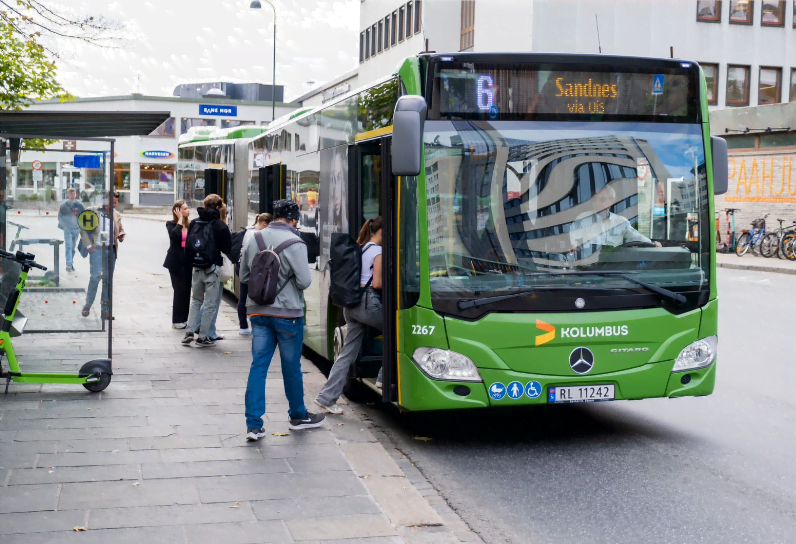
Public transport in Rogaland. Credit: Rogaland County Council
Innovative integration
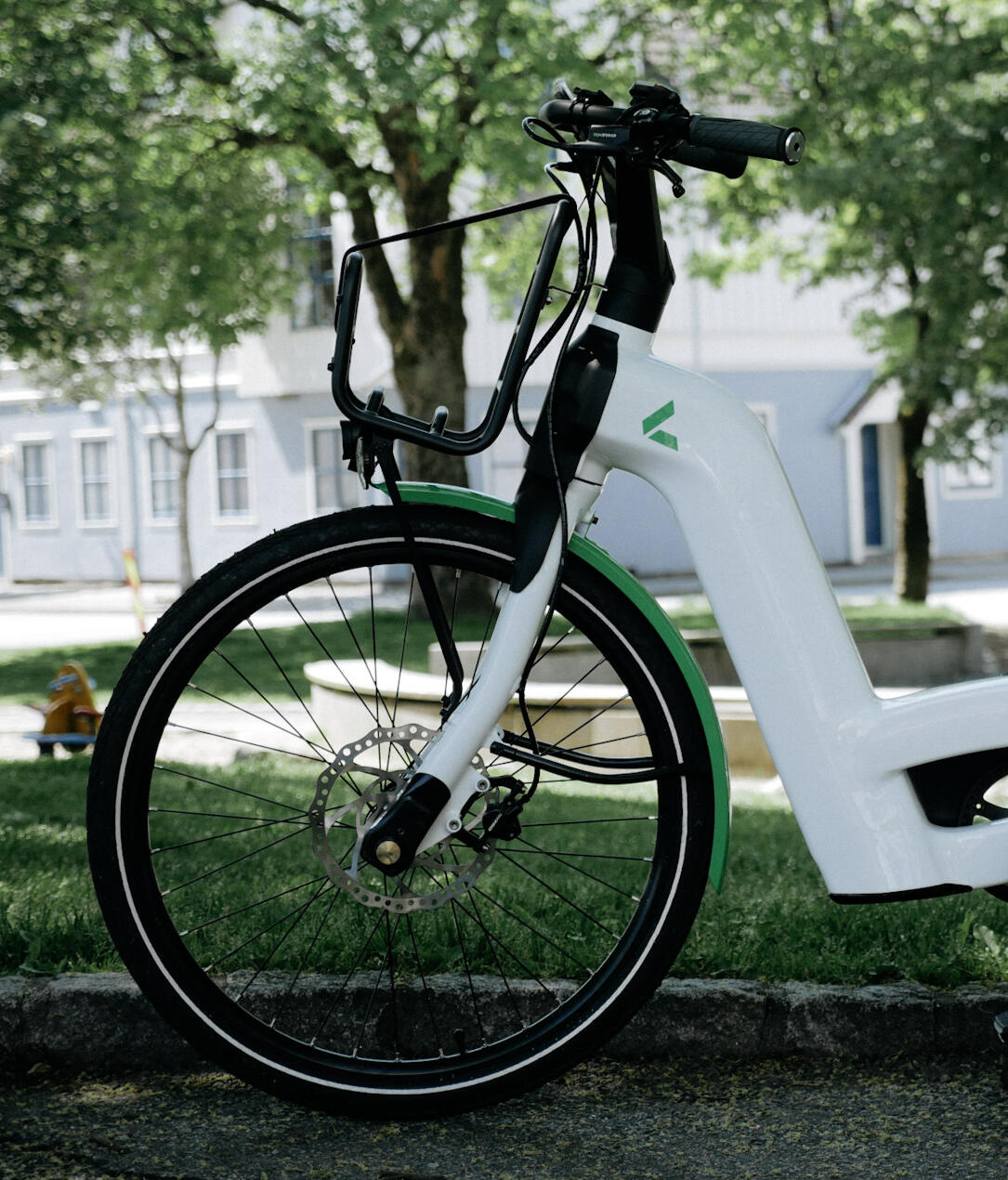
The shape of the city bike.
Credit: Kolumbus AS
The bicycles are now also integrated with the public transport ticket at both a technical and financial level. Each bus ticket now includes 15 minutes of bike access, with users also able to gain access to the city bikes through Kolumbus’ ticket app. Critically, the service is not subscription-based, thus making it more accessible for public transit users.
The region has a good collaboration with Kolumbus – its mobility provider – nonetheless, the search to finance a sustainable mobility transition remains demanding and filled with many complexities. The system is also connected to monthly tickets aimed at students and commuters to serve as both an A-to-B transport solution, or as a first- or last-mile solution. Around a third of the workforce in the Stavanger and Sandnes area also have access to one free hour of city-bike use, through the mobility planning scheme HomeWorkHome. Kolumbus also offers a youth pass for younger travellers between 15–22-years-old.
‘We are making it easier for citizens to take multimodal transit, with youth tickets too, providing access to all modes of transit for under 30 Euros per month for young people,’ said Marte Weberg Skipnes, Stavanger’s youth climate ambassador speaking at a recent European Week of Regions and Cities event on youth engagement in the green transition, held at the POLIS offices. ‘Sustainable, integrated mobility is crucial to support the efficiency and quality of the city and the wider region mobility system,’ echoed Runa Monstad, Director of Stavanger Region European Office, speaking at this event.
MaaS has gained traction, but we are yet to see large-scale deployment on the ground.
- Suzanne Hoadley, POLIS Traffic Efficiency Working Group Coordinator at POLIS Network
POLIS members get MaaSive
Rogaland’s actions are a valuable example of how Mobility as a Service (MaaS) can support our public transport systems, cementing their role as the backbone of urban mobility.
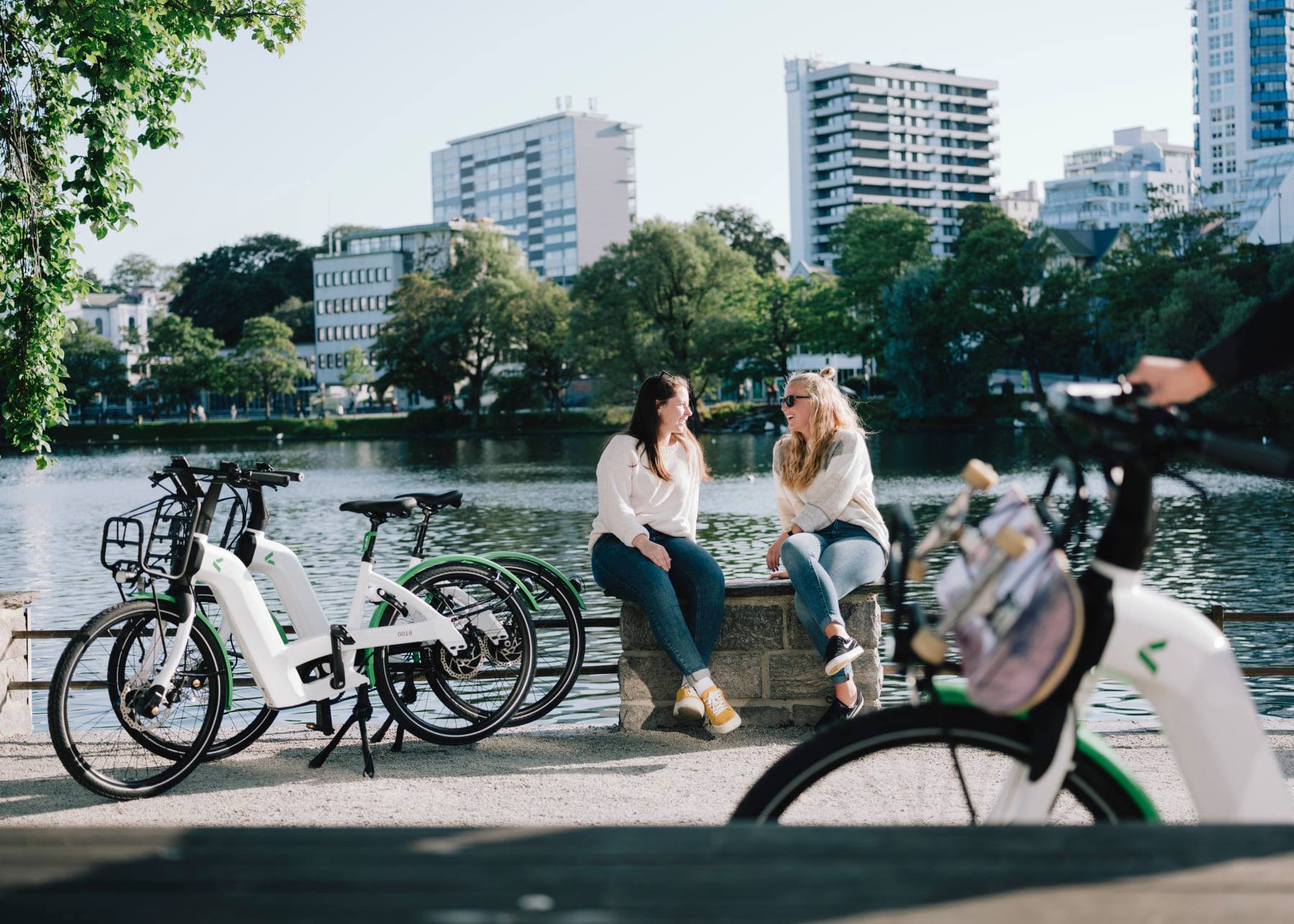
The bike can be locked and temporarily parked using the app.
Credit: Kolumbus AS
Such commitment to multimodal integration and integrated payment has been adopted and accelerated by many POLIS members. From Madrid’s Mobility 360 app to London’s Oyster card, new technologies and governance models are being utilised to encourage and facilitate public transport use and active travel.
MaaS technologies enable users to plan, book, and pay for multiple types of mobility services through a single digital channel. However, developing such a service is a complex process, demanding coordination between a range of public, and private, new and well-established actors across the industry from local authorities, PTOs, micromobility operators and ride-hailing platforms.
Electric bikes and easy access are key ingredients for success
The new shared bike system has seen a large increase in usage. During the COVID-19 pandemic, the government advised passengers to avoid crowded public transit, pushing travellers towards shared bike ridership. Post-pandemic, this surge in ridership has continued, with a 123% increase on last year’s figures.
Rogaland’s experience diverges from its neighbours. Existing bike-sharing systems in other Norwegian cities reached a users peak in 2019 and have since declined. At that time free-floating electric scooters were introduced in Norway by private companies.
This trend is perhaps explained by Rogaland’s commitment to electric bikes as well as integrated ticketing. With the introduction of free-floating electric scooters in Norway, electric bikes provide a comparable alternative which rivals the speed and ease of e-scooter transit.
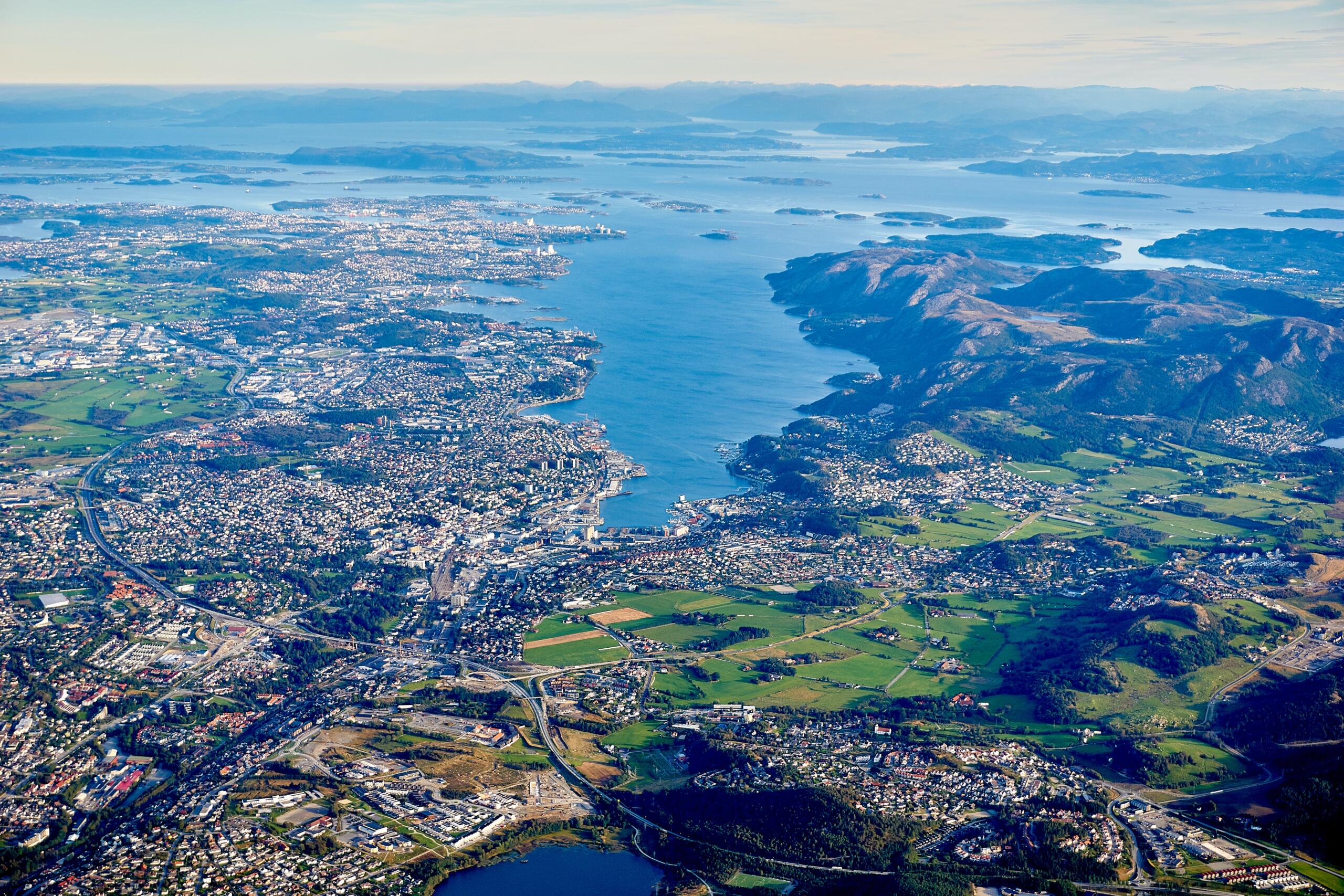
Stavanger and Sandnes are two cities connected.
Credit: Oleksii Topoliansky
Shared bikes are an extension of the public transport
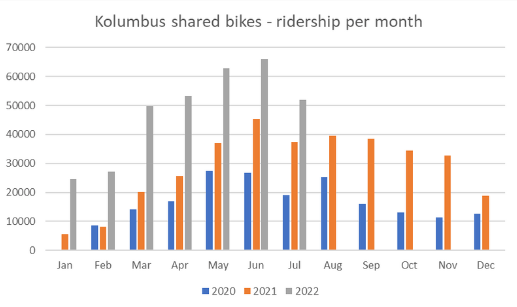
Graph showing passenger numbers from the mobility company Kolumbus AS.
Credit: Kolumbus AS
The bike-sharing system has been evaluated by the independent research institute NORCE, which compared bike-sharing systems in the Norwegian cities Trondheim, Bergen, and Stavanger and Sandnes. Critically, the survey supports the value of integrated ticketing, revealing that 37% of riders in Stavanger and Sandnes use shared bikes in combination with another public transit trip. The study also reports examples of extensive use of city bikes for short journeys where public transport systems do not provide extensive connection. This does however reduce the number of walking trips; however, the bikes are still considered overall beneficial for making non-car transit more attractive.
However, the results also showed that bikes seldom replaced car trips. About 49% of users answer that they would have used public transit if the shared city bikes were not available, while only about 22% would have walked. Nevertheless, further research is required, as the study did not investigate the financial gains or costs of offering bike sharing in combination with the public transit system. As Rogaland – and others – seek to scale up such services, enhanced understanding here is critical.
What have we learned?
Rogaland’s experience has shown that integrating bike sharing with the public transit ticket system can increase the competitiveness of public bike sharing. By offering electric bikes, the transport system also increases access and connectivity and becomes more attractive. The region has learned some key lessons which are useful for others during this process.
- Shared city bikes with integrated ticketing can create a more attractive transit system;
- Commercial and private companies are willing to subscribe to docking stations at their doorstep to improve the last-mile attraction for their employees and visitors;
- Innovative solutions come at a price, and volume is crucial to financial sustainability.
And finally – for those POLIS members located in colder climates… operating electric shared bicycles all year round in more tepid conditions is challenging, but not impossible!
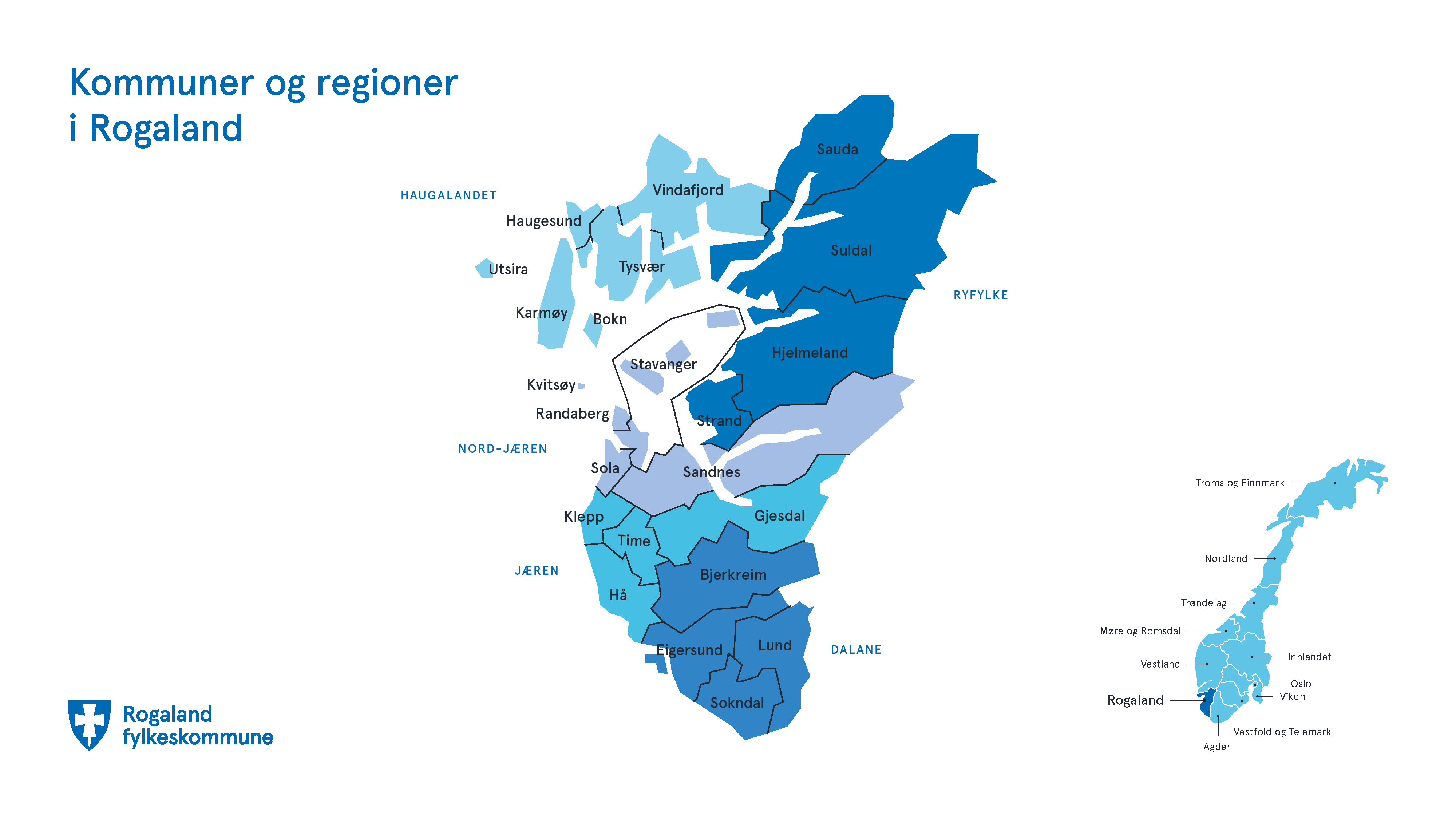
Map of the Rogaland region.
Credit: Rogaland County Council
Click here to read the article in its original format.
About the authors
Helmer Berre is advisor in cycling and mobility at Rogaland County Council. He has a background in social studies and has been working with human behaviour and mobility trends. Has a passion for cycling and making people and cities healthy.
Sven Kørner is advisor in cycling and walking at Rogaland County Council. He has a master's degree in human geography, specialising in sustainable urban transport.
